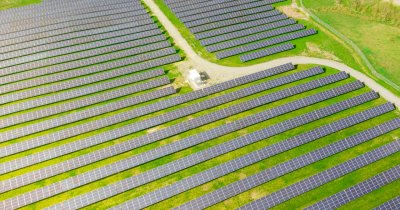As per experts who published the CDP Global Supply Chain Report, this is the amount of money global suppliers can lose over the next five years, if meaningful climate action isn't taken.
While the geopolitical situation plays a role in this unfavorable economic environment, it will eventually ease, the World Economic Forum writes, but climate change will continue to affect us.
They added that, while corporate leaders want to make a change in this regard and become more sustainable, there are two interconnected problems, one being the lack of data, which results into a lack of data-driven decision making.
To offer better solutions suited for each organization, decision makers must have access to reliable and contextual climate data in order to understand the risks and opportunities and to create a strategy based on these two factors.
The problem with current decision-making is that companies make use of historical and unreliable data, based on personal experience, rather than science, while climate change continues to have a big impact on the planet.
To have access to more reliable and accurate data that can help them formulate a better climate strategy, companies can make use of next-generation climate technologies, which can offer easy to understand and complex measurements. Internet of Things (IoT) devices can also improve the sustainable performance of a company, due to the fact that they are permanently connected to the internet, so they reach out to the data they need to optimize certain processes constantly and in an instant.
Himanshu Gupta, Chief Executive Officer, ClimateAi, said that "by leveraging actionable climate data, companies are more prepared for the major shifts in global temperatures, precipitation and other patterns that climate change brings."
Using the collected data, companies can implement specialized programs that can translate the data into strategies based on the impact the have on the operations, so that the process of decision-making is easier.
For example, in 2022, a building materials-specialized company used relevant real-time weather data to decide when it was the best time to deliver construction materials to sites in order to avoid a hurricane.
Real time measurement solutions can help companies better plan their climate strategy, avoiding mistakes that would otherwise setback their sustainability progress. These should be implemented with intelligent devices that can make use of the data and integrate them into relevant strategies for the reduction of CO2 emissions.
 Mihai - Cristian Ioniță
Mihai - Cristian Ioniță












Any thoughts?